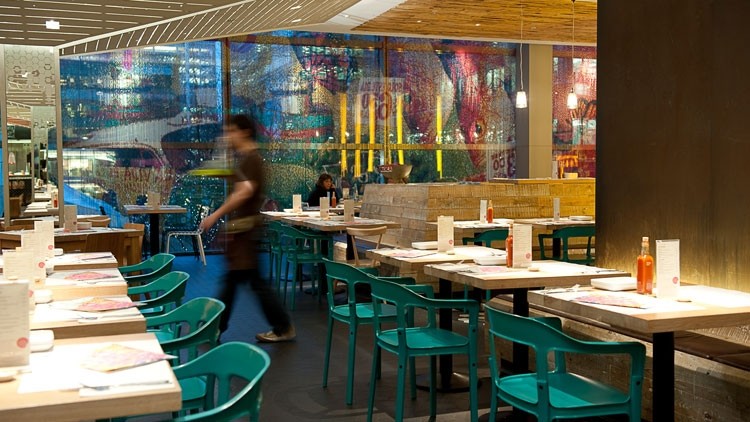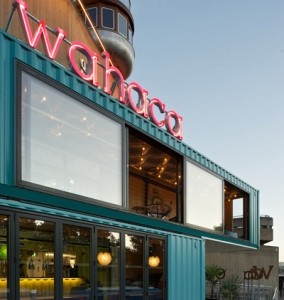What restaurants can learn from Wahaca’s PR disaster

The saying goes that no publicity is bad publicity, but in the era of social media that idea is becoming increasingly debatable with Wahaca once again at the centre of a negative PR storm.
A single tweet by a customer at the Mexican chain’s Kentish Town site on Saturday evening (15 June) has spawned thousands of responses, forcing the group to publicly “clarify” its policy on waiters paying for walk-outs.
Sarah Hayward, former Labour leader of Camden council, tweeted to her over 7,000 followers: “Hi @wahaca just eaten in your Kentish Town restaurant for the last time. Ppl next to use left without paying and their server is made to foot the bill from his wages. Apparently, company policy. Utterly shameful employment practice. Food is great, company is crap @thomasinamiers.”
Wahaca did not respond until the following morning, by which point the likes and retweets had skyrocketed and the story was picked up by the national press. The restaurant group found itself on the most-read BBC headlines, outranked only by the Conservative leadership debate.
The company’s response then shifted in to gear. Co-founder Thomasina Miers replied personally, tweeting that it was not “standard policy” for a waiter to be charged for a dine-and-dash. She wrote that the staff member was charged £3 on a £40 bill “at the manager’s discretion” but has since been reimbursed. In a later post she added that “only when a waiter knowingly lets someone walk out without [paying] does it constitute gross negligence which [this situation] clearly wasn’t”.
We haven’t changed it, we’ve clarified it. It was never a policy just to charge waiters randomly, only in cases of gross negligence, ie when they knowingly let a customer leave. Our real error was not being clear in that for our mgt. which, thanks to you, we have rectified...
— thomasinamiers (@thomasinamiers) June 17, 2019
A former Wahaca employee even posted images of a handbook which said waiters would be “liable to pay the full bill including service” if a customer left without paying, though a representative for the company says this is an old guide which “will be updated”.
Wahaca co-founder Mark Selby blamed the problem on an “internal communications issue”. But what happens when an internal issue becomes external?
There is a problem of clarity here for both customers and staff, and even Wahaca’s updated policy on its website relies on the discretion of individual managers if they “suspect” team members are “complicit” in the walk-out. How is this decided? Are waiters expected to physically stop a group from dine-and-dashing while their back is turned?
Ongoing issue
This is not the first time restaurant chains have faced a backlash in the press over a lack of transparency in their cash handling policies.
When Zizzi came under fire over reports it used staff pay and tips to cover “mistakes” such as walk-outs in 2017, it also blamed poor communication and promised to “revisit the wording of the policy”. Zizzi’s owner Azzuri Group insisted the scheme was to prevent “fraud and negligence” and not to fine staff for “genuine mistakes”, again not clearly defined.
According to Government guidelines it is legal for restaurant employers to take up to 10% of a staff member’s gross wages (before tax and National Insurance) each ‘pay period’ to cover any shortfall in the till. But there is a difference between employees deliberately pocketing money, and diners running off while their back is turned.
Kate Nicholls, chief executive of trade body UKHospitality, says it is “absolutely not standard practice” for restaurants to make employees foot the bill for walk-outs.
“In this instance it was a case of miscommunication which Wahaca has addressed and dealt with promptly,” she says. “In the event of a walk-out, every business will have its own policy as to how it recoups the lost money as it will obviously have an effect on the business. This may have an impact on things like bonuses or tip pools, but forcing staff to cover the cost from wages is not widespread practice.”
External response
For restaurants the cost of footing the bill is minimal compared to the impact of a major PR disaster. Poor communication and one comment from a member of staff can quickly blow up online. This is an emotive topic, and while businesses understandably want to protect their bottom line it seems harsh to do so at the expense of a staff member for whom £3 is almost 40% of their hourly wage.
In Wahaca’s case the delayed response is also odd for a company which negotiated the PR nightmare of a norovirus outbreak in October 2016, after which it had to temporarily close nine restaurants after 160 diners became ill. In the aftermath Miers and Selby personally wrote to everyone who had been unwell and have spoken honestly about situation.
But as restaurant PR and communications expert Hugh Wright wrote in a blog post on the subject, “bad news doesn’t age well”, and this weekend’s events are not a good look for a chain like Wahaca which prides itself on its company culture and staff benefits.
Its clear there needs to be better communication from restaurants to both staff and customers on the issue. Similar headlines around tips and their distribution through the tronc system have also highlighted the need for a clearer industry standard around pay issues.
Nicholls says: “Customers should be aware that walking out on a bill is not a “victimless crime” and that leaving without paying has consequences for the business, its employees and, ultimately, customers as well.”
As Wright wrote on his blog, rapid and clear communication from brands after an incident is key. “Acknowledge that something went wrong, explain why it happened, apologise for it, and set out what you’ve done to make sure it won’t happen again,” he says. “And as with any emergency, if you’re at all unsure what to do, for goodness’ sake call in an expert.”
Almost 72 hours on for Wahaca the team member has been reimbursed and the company has apologised and publicly “clarified” its policy. But a number of hospitality staff have also spoken anonymously to I News, claiming that deducting pay for walk-outs is common practice in chain restaurants.
After the public outcry, let’s hope it prompts other restaurants to communicate properly with staff to avoid repeat instances of unfairness. If not, it is only a matter of time before they will be found out.


































